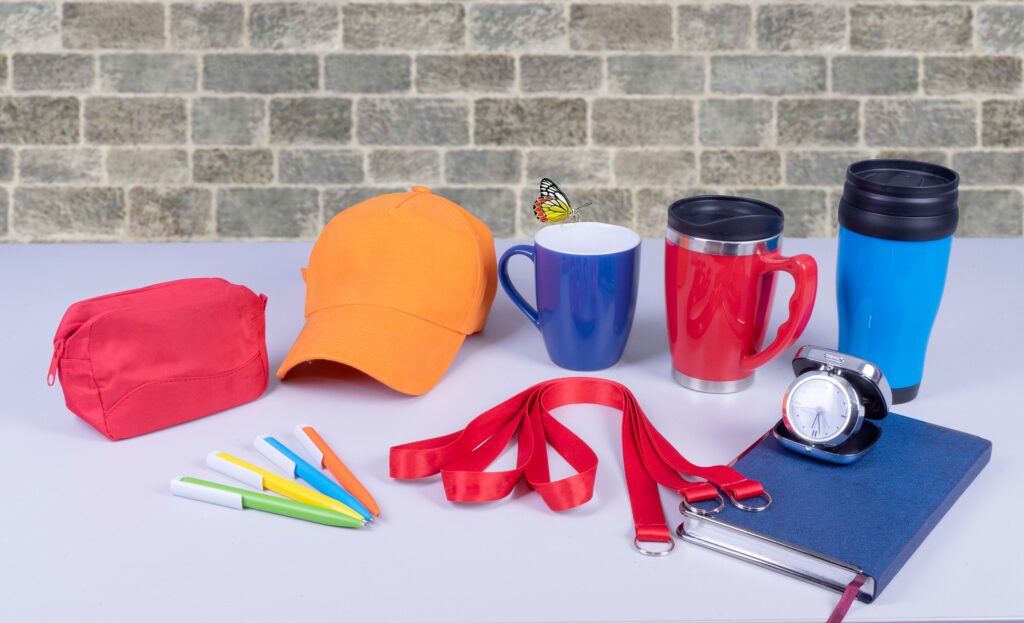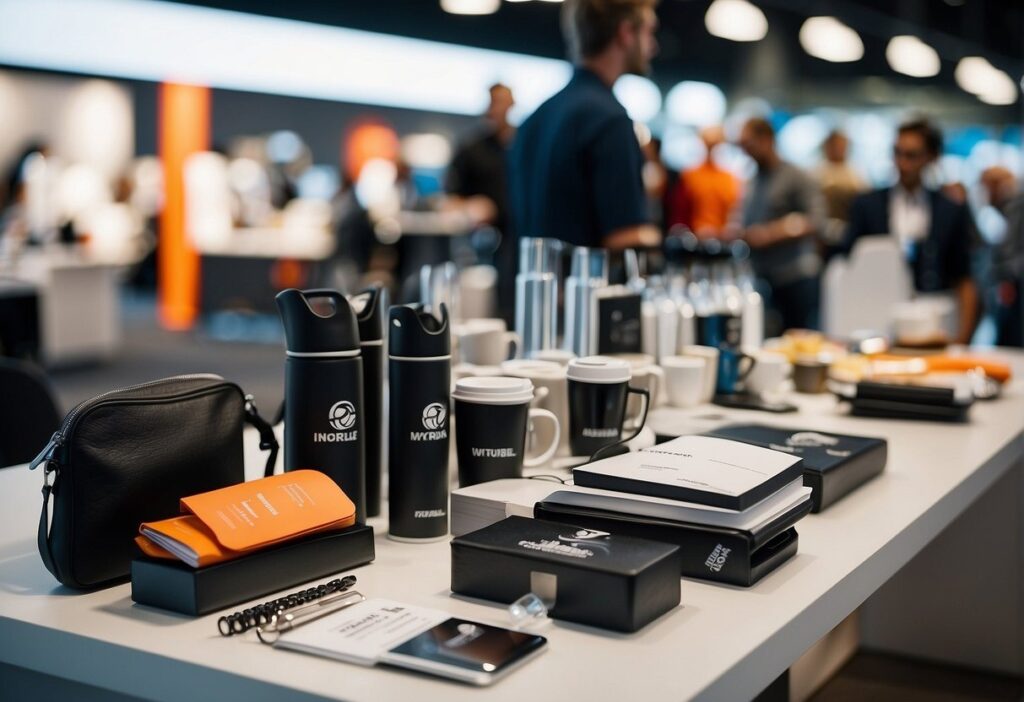Ever wonder why something as simple as a free tote bag or coffee mug with a logo on it can make people feel oddly loyal to a brand? I mean—it’s just a pen, right?
Well, not quite
Promotional gifts might seem like a basic marketing tactic, but they’re actually backed by some fascinating psychology. And when done right, they can create genuine connections that drive long-term business relationships.
Let’s dig into the why behind the what, and see why promotional gifts aren’t just giveaways—they’re strategic power moves.
The Rule of Reciprocity: We’re Wired to Give Back

This is the big one.
In psychology, there’s something called the rule of reciprocity. It’s a social norm that basically says, “When someone does something nice for us, we feel a natural urge to return the favour.”
So when you give a potential customer a gift—even a small, inexpensive one—you trigger that little voice in their head that says, “Maybe I should at least check them out.” Or “I kinda owe them one.”
It’s not manipulation. It’s just how human relationships work. And smart businesses have been using this dynamic for decades.
But there’s an even deeper layer here. Reciprocity doesn’t just encourage a one-time reaction — it often sparks a relationship mindset. People begin to view your brand not just as a company selling a product, but as a partner who invests in them first.
That small gesture can shift the power dynamic, positioning your brand as the one that gives before it asks. And in a competitive market, that can make all the difference.
Gifts Create Positive Emotional Associations

Here’s the thing: people don’t always remember what you say—but they do remember how you made them feel.
A well-timed, thoughtful promotional gift creates a mini emotional “spark.” It catches someone off guard (in a good way), makes them smile, and links your brand to that good feeling.
That comfy hoodie they wear on Sundays? Branded.
The wireless charger they use every day at work? Branded.
The cute notebook they scribble ideas in? You guessed it—branded.
Now your company is part of their routine. And that’s gold.
Emotions drive decisions far more than logic, and brand loyalty is built on feelings, not features. When your gift creates a moment of delight, your brand is no longer just a name — it becomes part of a personal story.
It Feels Personal (Even When It’s Not)
People like to feel seen. They like to feel chosen. So when they get a branded gift—especially one that’s useful, well-designed, or feels premium—it tells them:
“Hey, we thought about you.”
Even if they know it’s mass-produced, there’s still a sense of personal touch. That’s why promotional gifts often feel more meaningful than just another digital ad or sales pitch.
If you really want to level up? Personalize it. Add a name, a custom message, or something tailored to the recipient’s interests. That small detail can turn a branded gift into a keepsake. And when people keep something, they’re more likely to keep thinking about you.
Tangible Beats Digital (Most of the Time)

We’re surrounded by digital noise. Ads, emails, DMs—it’s endless.
But a physical gift? That’s different. It’s tactile. Memorable. It doesn’t get lost in an inbox or scrolled past.
Holding a high-quality pen or unboxing a sleek piece of branded tech gives people a moment to pause and engage. It pulls them into your brand’s orbit in a way that’s hard to replicate online.
Plus, physical items have a “shelf life.” An email might last seconds, but a branded mug could sit on someone’s desk for years, silently reinforcing your brand message every single day.
Brand Recall on Steroids
One of the big challenges in marketing is sticking in someone’s mind. And here’s where promotional gifts shine.
Studies have shown that people who receive branded items are way more likely to remember your brand later—and positively. Especially if that item is useful, like:
- Phone accessories
- Reusable water bottles
- Eco-friendly tote bags
- Tech gadgets
- Notebooks and planners
Every time they use that item, they see your logo. Your message. Your vibe. That repeated exposure builds familiarity—and trust. And in marketing psychology, familiarity often leads to preference.
The Social Ripple Effect

Ever been at a conference and seen someone with a cool piece of swag—and immediately asked, “Where’d you get that?”
Exactly.
Good promotional gifts don’t just please the recipient. They create curiosity and conversation. People post them online, show them off, and sometimes even fight over the last one at an event booth (true story: branded socks are weirdly competitive).
This kind of word-of-mouth and social visibility can be priceless—especially if your branding is clever, beautiful, or funny. A great promotional gift can turn your customers into brand ambassadors without them even realizing it.
Final Thoughts
Promotional gifts aren’t just fluff. They’re psychology-powered branding tools that tap into human nature: our love for generosity, surprise, and connection.
So the next time you’re planning a campaign, product launch, or event, don’t overlook the humble giveaway. A well-designed piece of swag can leave a lasting impression—and sometimes, that impression turns into real business.
Just remember: if you want your gift to work, make it useful, make it relevant, and above all—make it feel good.
Because when it comes to branding, emotion beats logic every time.

